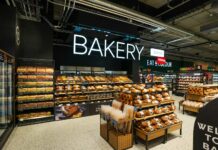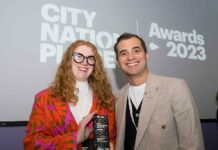Bugle Journalist Poppy Woods spent the last month at Impact Brixton, getting to know its spaces, creators and most importantly: community.
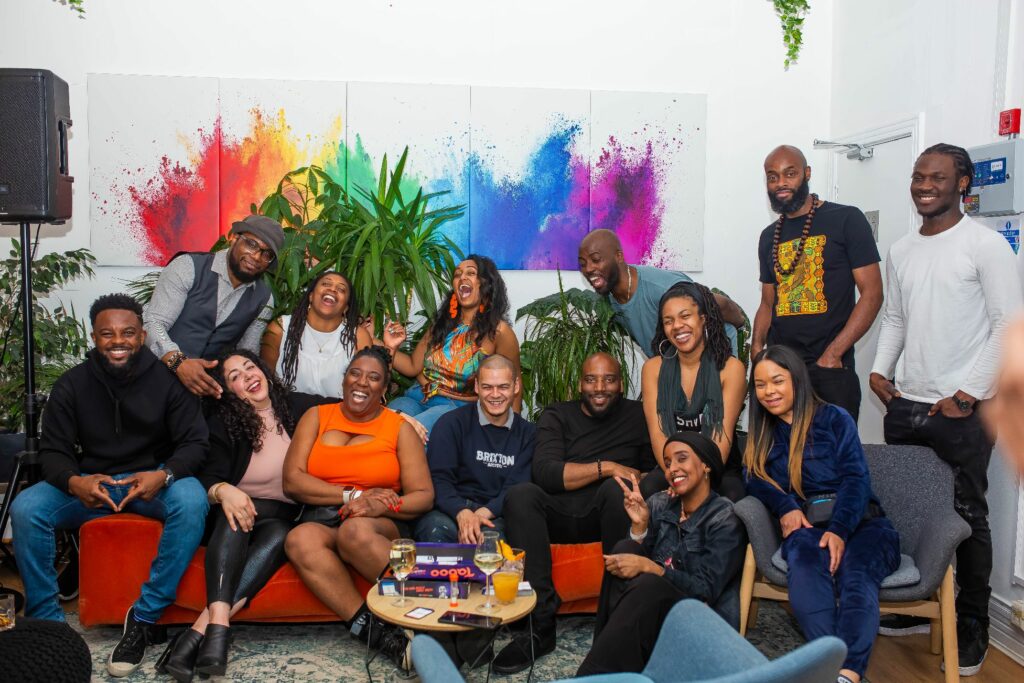
Did you know that Brixton is home to Europe’s first Black-owned co-working community? You wouldn’t be the first to walk past the unassuming door on Electric Lane or look up from Market Row without realising what is hidden above. When I first visited it wasn’t until I saw their rainbow-emblazoned flag that I realised I hadn’t been directed to the wrong place. However, by my third visit I already felt a part of its community, the nervousness I often feel on entering a professional environment gone as I slumped straight into an armchair and began to work; helping myself to their inhouse barista coffee and greeted with smiles by everyone I met. It is exactly this feeling; partly curated and entirely natural, that makes Impact Brixton so unique.
After one of the most efficient 15 minutes of work I have done in several months, Impact Brixton’s co-owner Gerald Vanderpuye arrived to chat with me. Gerald is the charismatic heart of the space; a native Brixtonian, he had moderate success on what he calls a ‘mediocre startup’ when he reached a crossroads.
Gerald always dreamt of investing in his community once his start-up had succeeded via a successful sale. However, three years later, his tech company ShoDeck had achieved “mediocre” success and narrowly lost out to their competition, which Linkedin acquired. So he returned home to Brixton to start again by investing his time learning about Blockchains and community capacity building.
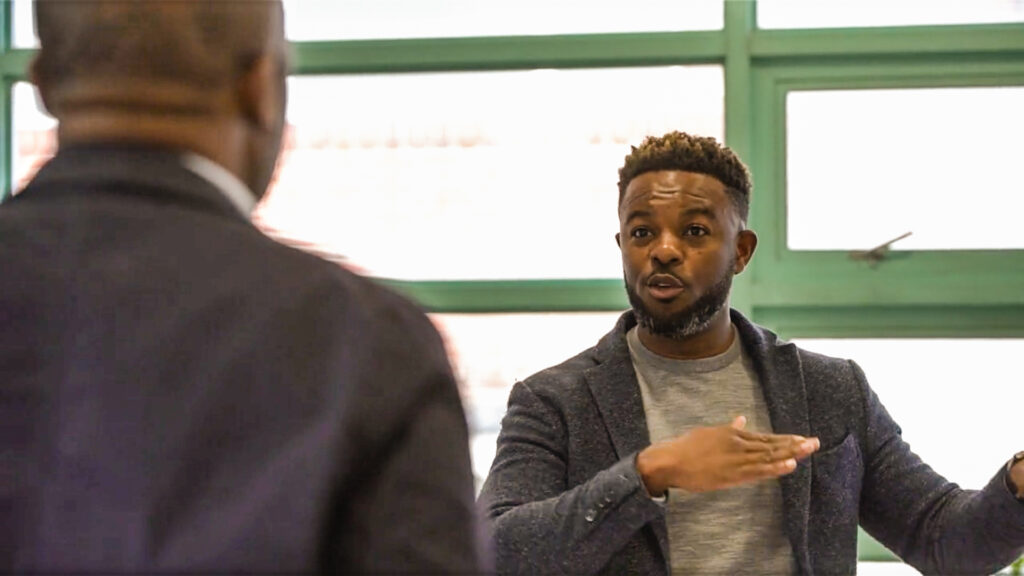
This, Gerald realised, couldn’t happen:
Myself and other members of the core community were like; this is too important. And I think that’s the story, then it just happens that it’s now the only, or certainly the first, large-scale co-working space that is 100% Black-owned…the reason we kept the ‘Impact’ name is because the community didn’t change. Brixton didn’t change. And we were still making an Impact, so we dropped the Hub.
Equally as serendipitous was Impact’s move to their location on the first floor of Market Row. After concluding that the community had outgrown their 3000 sq/ft home in POP, Gerald bumped into the owner of Brixton Village who at the time happened to have an unused 7K sq/ft former photography processing studio available for rent. Never one to be put off by a challenge, and after many more twists and turns to this creation story, Gerald soon had a three-year lease agreement on what became new and improved Impact Brixton CIC.
And whilst social impact continues to, and always will, be at the heart of Impact Brixton’s mission, like most businesses they have had to adapt to a changing local landscape and redefine the community that they serve. In the last year, they have seen an exponential increase in members and visitors that identify as belonging to the ‘creator economy’. As a result, the decision to evolve the name further from Impact Brixton to IB was made.
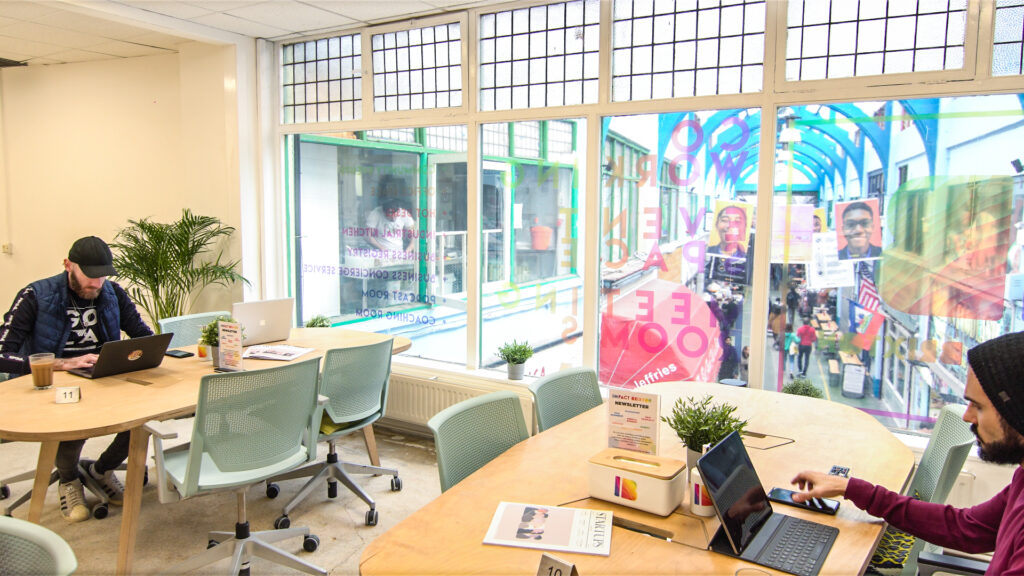
Anyone who enters IB will note how different it feels to other co-working and office spaces, and this lies in part to its interior which has been beautifully and conscientiously designed by the community and led by Gareth Esson, whose company Guess Design House. The joined on IB’s exchange programme that gives access to those who can’t afford coworking in exchange for their skills. GDH has grown and flourished in IB now serving businesses like Satay bar, Brixton distillier and many more in Brixton. Speaking to IB’s members, I get a sense that this space belongs to them, the solid community of creators who call it their professional home. It represents its community and their values as, unlike other co-working spaces, they came first. After ascending a modest staircase, you are met by open airy space, filled with plants and furniture reminiscent of a welcoming sitting room. Rows of polaroids adorn the wall, introducing you to the 200+ members within the IB community of 5K people. Take a turn to the left and you’ll enter the family-style kitchen where members are encouraged to connect over lunches and the weekly tea and cakes social. To the right you’ll find a maze of co-working areas, various meeting rooms and nooks for phone booths (and even a podcast studio!) Most unexpected is the spacious open-plan event space overlooking the bustling Market Row.
On the second floor of this seemingly endless space you’ll find The Black Bar, a fully-licensed, fully flexible venue that’s equipped to handle all manner of events – from live music, film screenings, panel discussions and workshops (all of which have taken place in this truly stylish space, decorated in all – you guessed it – black).
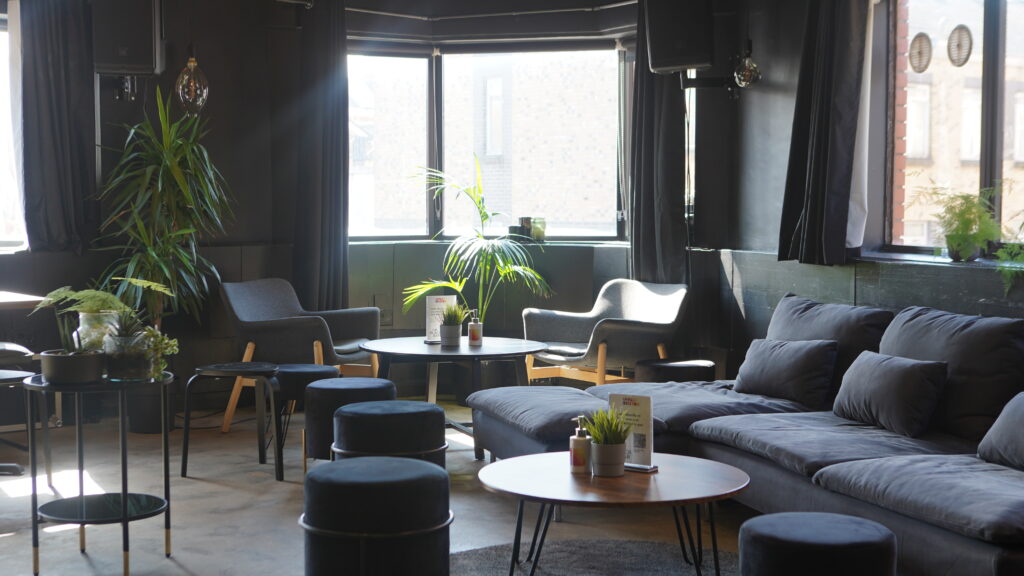
The Black Bar, whilst in stark contrast to the rainbow vibrancy of the rest of IB, still manages to convey a feeling of home. Gerald says of this intentional design: ‘When people think about office space, they think of something sterile, and they expect it to look like a traditional office. What we’ve created is a space that is welcoming to anyone and feels more like a home than it does an office. We designed it so nobody feels that they don’t belong here. It’s a truly inclusive space, and we’ve done that by making it feel like home, you just happen to be working here. So that’s the first thing, but I think the more profound feeling that we expect from anyone that’s joining this space is to be inspired to work on their dreams. That’s what we’re here for.’
This is the message that really emerged from my time at IB and transcends anything that could be contained in the physical. Something that everyone I spoke to emphasised: the feel and magic of the place, built on people and community; on diversity and inclusivity. As Gerald, with his signature passion is quick to tell me:
‘When you come in here and you look on the wall, you’ll see it says welcome dreamers, and every quote on the wall is about dreams and it’s really because our community is, first of all, the most diverse co-working space, I believe probably in the world, but definitely in the UK. And our community is often from underrepresented backgrounds, from deprived areas that perhaps are lacking, are unemployed or at least are low-income and have grown up in low-income families or areas and have turned their back on that traditional employment route and are pursuing their creative side. And often what we’re trying to do is inspire them to believe they can do that and then support them to do that through either our programmes or just people they meet in the space. So two things (that form the basis of Impact) number one is inclusivity, and number two is the inspiration to pursue the thing that you really want to do as a creator.’
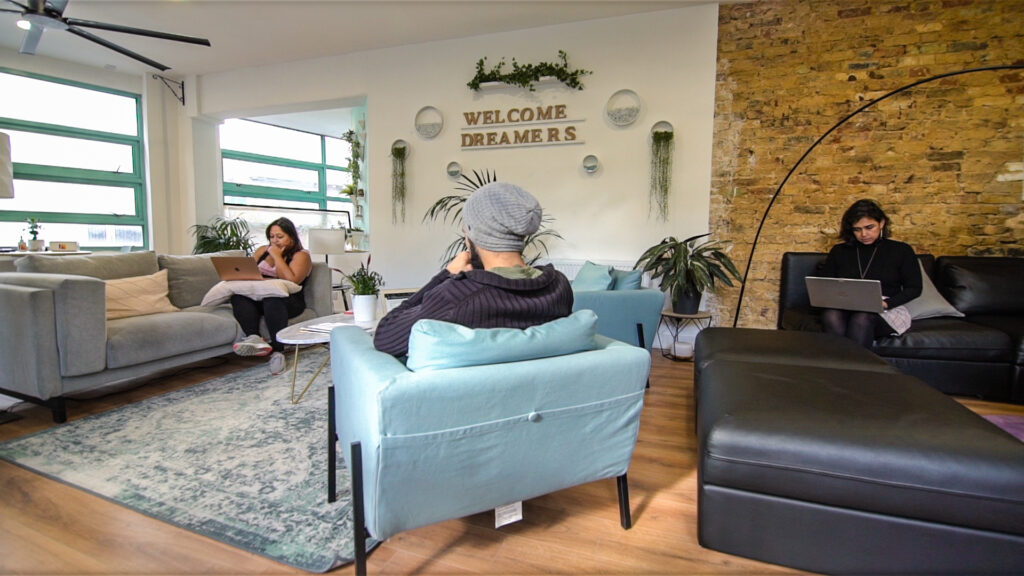
IB member Danielle Bowman, CMO of Found by Few, has worked in many other professional environments and says that while she succeeded in the roles she never felt completely comfortable in these spaces as until coming to IB “I’d never walked into an office space and seen more than one person who looks like me. Whereas when I walk into here the majority of people look and sound like me and that goes back to the confidence and just not feeling like you have to change or adapt in order to fit in. I feel like I don’t have to do that here.” Khalid Khan, of fashion brand ‘Figures London’ says “When you go in there you’re met with a smile, it’s open. One of the beautiful things about it is you have a space where you don’t feel ideas will be judged or stomped on…a space where you could be creative, you could have an idea, be championed.” A point which Andry McFarlane (also profiled) also reiterated; “There are all these people around me who believe in me and support me…It represents the demographic of our Borough, members who are much older, much younger, there’s a race diversity, there’s gender diversity, there’s so much. There’s a lot in there that mirrors what our community is; it’s a space to be welcomed.”
IB truly feels like a part of Brixton, one moment you are walking through the market and the next inside its walls, effortlessly reflecting the beauty and diversity of our neighbourhood. It is everything big corporations want to be for inclusivity but fail because this is not something that can be bought or imposed with diversity initiatives, but rather grows naturally from a community built on care and acceptance. Reading through the transcripts of my conversations with everyone at IB, I notice that they all really emphasise the value of belonging to a community; a community which is not competitive but confident, a community without pretence or corporate posturing but completely natural, empowered and most of all: strong. As Khalid says: ‘When you go in you’re just met with that smile, and it reminds you; whatever the world is like outside there’s this space that doesn’t feel real but is real.’
And IB does not just limit its welcoming hospitality to co-working members only. They run a whole host of educational and social events that are open to anyone, with an overall mission to support entrepreneurs, creators and freelancers to build connections and collaborate. Most well-known is their iconic monthly social, Last Friday, which describes itself as a ‘networking event like no other’. Expect delicious locally-sourced food, quality cocktails, a seemingly infinite supply of board and video games, and a rotating line-up of entertainment ranging from live comedy, karaoke and a highly-rated pub quiz. Whilst Last Friday has taken a short summer break so that the volunteers who run the night can relax, it is set to return with a bang on Friday 30th September.
You can also hang out at IB for their weekly Friday Creator Club open mic and happy hour event, where they offer discounted cocktails and the chance for creators to share their ideas with a supportive and collaborative group.
Last Friday – https://www.eventbrite.com/e/358383473617
Creator Club Happy Hour – https://www.eventbrite.com/e/271940420117

